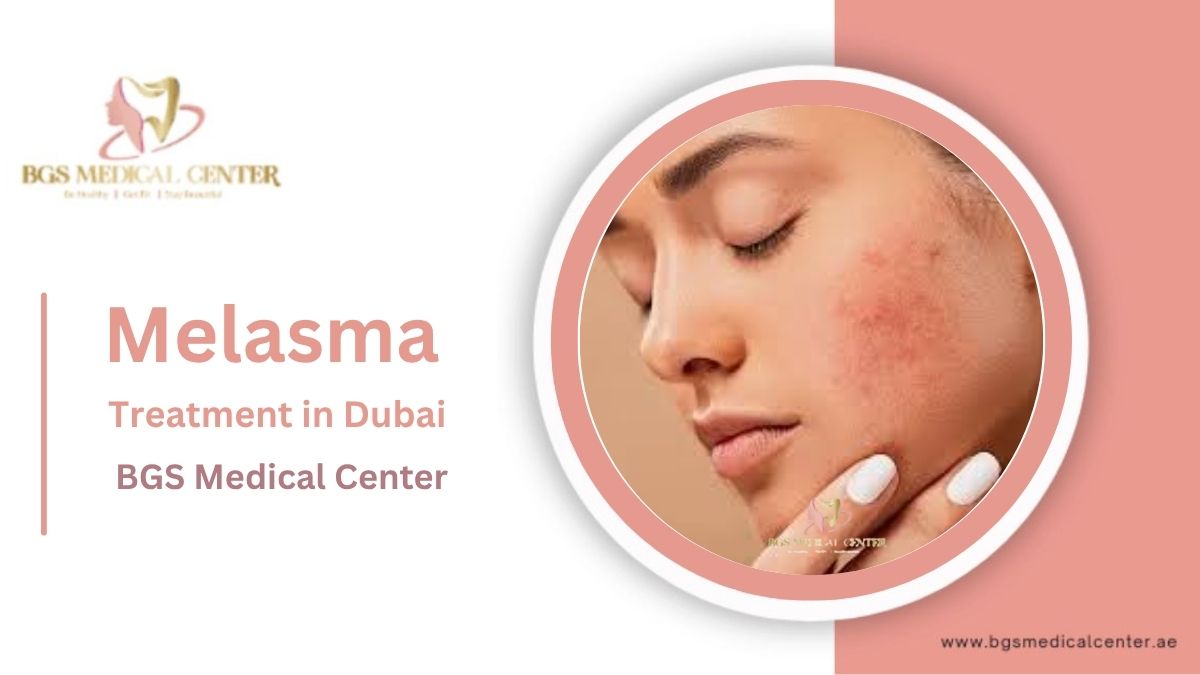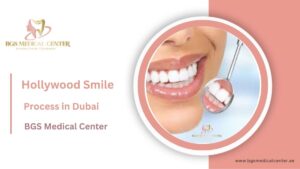Living in Dubai means constant sun, and for many, that sunlight triggers stubborn brown patches across the face. These dark patches, known as melasma, are common among residents exposed to heat, humidity, and strong UV rays year-round.
The good news is, melasma can be managed safely and effectively with the right medical plan. You don’t need to hide it with makeup or depend on random creams. Dermatologists in Dubai now use advanced technology and medical-grade skincare tailored for the UAE climate.
In this guide, you’ll learn what causes melasma, how it differs from other pigment issues like hyperpigmentation vs melasma, and which laser, peel, and topical options work best in Dubai’s weather.
What Is Melasma and Why Is It So Common in Dubai?
Melasma is a chronic pigmentation disorder that appears as symmetrical brown or gray patches on the face, often on the cheeks, forehead, or upper lip.
Dermatologists explain that melasma develops when melanocytes (pigment-producing cells) become overactive. This can be triggered by:
- UV exposure: Constant sunlight in Dubai stimulates melanin production.
- Hormonal changes: Pregnancy, contraceptives, or thyroid imbalances.
- Heat exposure: Even without direct sun, hot weather increases pigment activity.
- Genetics: Some skin types are more prone to melasma than others.
Because of these triggers, melasma is one of the most common skin pigmentation disorders treated by dermatologists in the UAE. Learn more about related concerns in our pigmentation disorders treatment guide.
How Do Dermatologists Diagnose Melasma in Dubai?
At your consultation, your dermatologist will:
1. Examine pigment depth under bright and UV light.
2. Determine whether your melasma is epidermal, dermal, or mixed.
3. Identify any triggers, such as hormonal changes or skincare misuse.
4. Design a treatment plan that fits your skin tone, sensitivity, and lifestyle.
Melasma often needs ongoing management, not one-time correction, which is why DHA-licensed dermatologists in Dubai focus on safe, gradual improvement over quick fixes.
How Is Melasma Different from Hyperpigmentation?
Though they may look similar, melasma and hyperpigmentation behave differently:
| Feature | Melasma | Hyperpigmentation |
|---|---|---|
| Cause | Hormonal and heat triggers | Acne, sun exposure, or injury |
| Pattern | Symmetrical patches | Random dark spots |
| Depth | Often deeper (dermal) | Usually surface-level |
| Treatment | Requires long-term management | Typically improves with shorter treatment duration |
Understanding this difference helps your dermatologist choose the right approach. This insight is also useful when exploring hyperpigmentation treatment in Dubai, as it explains how each condition responds to care and why accurate diagnosis matters.
What Are the Best Melasma Treatment Options in Dubai?
Melasma responds best to combination therapy, targeting both pigment and its root cause. Here are the most effective and DHA-approved options:
1. Laser Therapy:
Fractional and low-fluence lasers break down pigment gently without overheating the skin.
– Safe for medium and darker tones.
– Treats deeper melasma (dermal and mixed).
– Minimal downtime (1–2 days).
2. Chemical Peels:
Mild chemical peels exfoliate surface pigment and brighten tone.
- Effective for epidermal melasma.
- Ideal for patients sensitive to laser.
- Peels like glycolic or lactic acid are preferred in humid Dubai weather.
3. Topical & Medical Skincare:
Prescription creams with hydroquinone alternatives, antioxidants, and retinoids reduce pigment activity gradually.
- Used as maintenance between sessions.
- Safe under dermatologist supervision only.
4. PRP and Microneedling:
Boosts collagen, improves tone, and supports pigment reduction. Used as complementary care for resistant melasma types.
“For Dubai’s sunny climate, we combine gentle laser with medical skincare rather than aggressive peels,” says Dr. Mohammed Hassan, Specialist Dermatologist at BGS Medical Center.
What Makes Treating Melasma in Dubai’s Climate Different?
Dubai’s weather poses unique challenges for melasma patients:
- UV exposure year-round makes sun protection essential.
- High humidity can irritate sensitive skin post-treatment.
- Air-conditioned indoor environments cause dryness and imbalance.
That’s why dermatologists design seasonal treatment plans, stronger in winter, gentler in summer, and emphasize lifestyle care like consistent sun protection in Dubai routines.
For best results, your plan may include:
- Daily SPF 50+ with broad-spectrum filters.
- Vitamin C or niacinamide serums to reduce pigment activity.
- Regular follow-ups to track progress.
How to Prevent Melasma from Returning
Even after visible improvement, melasma can relapse if triggers aren’t controlled.
To prevent recurrence:
- Reapply sunscreen every 2–3 hours when outdoors.
- Avoid strong perfumes or skincare acids before sun exposure.
- Keep skin hydrated with light, non-comedogenic moisturizers.
- Continue using maintenance products prescribed by your dermatologist.
Long-term care builds resilience, protecting against both pigmentation and premature aging.
FAQs
Q. Is melasma treatment safe in Dubai?
Yes. DHA-licensed clinics use FDA-approved lasers and peels that are safe for all skin types when handled by certified dermatologists.
Q. Can melasma be cured permanently?
Melasma can be controlled, not permanently cured. Regular maintenance and sun protection prevent it from coming back.
Q. How many sessions will I need?
Most patients need 4–6 sessions for visible improvement. Your dermatologist will adjust based on pigment depth and skin tone.
Q. Is laser safe for darker skin tones?
Yes, Dubai dermatologists use low-fluence lasers designed for safety and effectiveness on darker tones.
Q. Can I do melasma treatment in summer?
Yes, but your dermatologist will use milder settings and emphasize sun avoidance and SPF use.
Q. Which treatment works best for melasma in Dubai?
Combination plans, laser, peel, and topical care, provide the best results for Dubai’s weather and skin diversity.
Q. Does hormonal melasma need different care?
Yes, if your melasma is hormone-related, your dermatologist may adjust your skincare and treatment timing.
Conclusion:
Melasma treatment in Dubai requires precision, patience, and professional care. Dermatologists at BGS Medical Center design individualized plans that respect the UAE’s climate and each patient’s skin tone.
If you’re ready to manage melasma effectively, highlight this text for linking: melasma treatment consultation, or visit our skin pigmentation specialists for expert care in Deira.
Disclaimer:
This article is for educational purposes only. It does not replace medical advice. All treatments must be done by DHA-licensed dermatologists. For personalized care, contact BGS Medical Center, Dubai.





